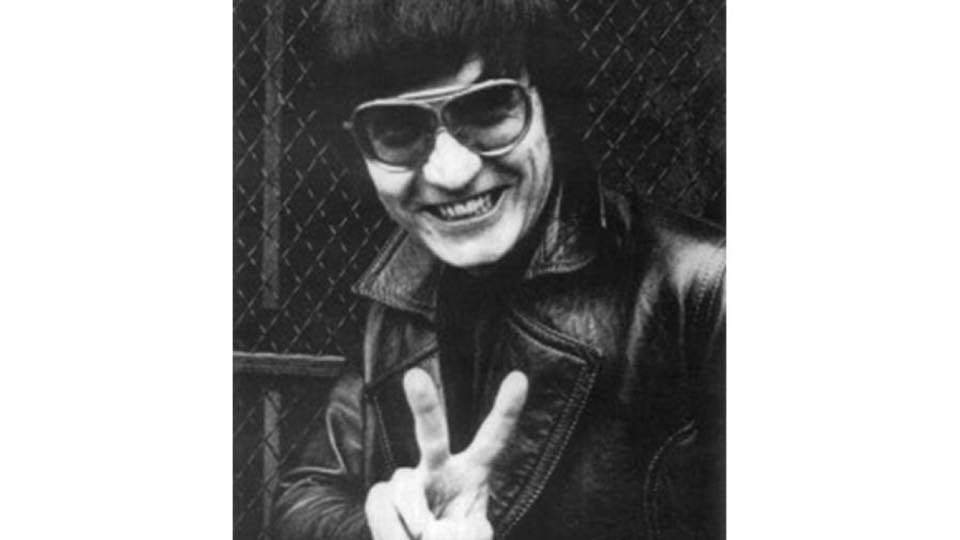
On Tuesday, Detroit lost one of its rock radio luminaries. Russ Gibb – better known to Detroiters as “Uncle Russ” – passed away this week. Russ’ departure from this earth received coverage in the industry trades, but if you didn’t live here and/or weren’t around in the 60s and 70s, you missed the moment.
Sadly, I never met Russ – our paths never formally crossed – but he was one of my “influencers.” Like a lot of kids who grew up in the Motor City, Russ had an indelible impact on Detroit radio, the concert scene, and rock n’ roll.
jācapps’ COO, Bob Kernen, grew up in Dearborn where Russ, among other things, taught high school. He was a friend of the family, and Bob recounts his memories of Uncle Russ, the man and the myth.
And at the end of Bob’s entry, I’ll share something about Russ’ impact on me while in school at the University of Michigan. It turned out to be one of my seminal moments. – FJ
Remembering “Uncle Russ” Gibb
Legend has it that the aliens dropped him on the beach in Big Sur, California. That’s where he got his name – Rus Gib = Big Sur backwards! I can’t prove that, nor can I disprove it, but there was definitely something alien about him.
By the time I met him in 1980 he was already a legend and twice-over famous. First, as the impresario behind The Grande Ballroom (pronounced “Grand-ee”) in Detroit where he booked the first appearances in the Motor City by bands like Cream, The Who (below left), and Janis Joplin.
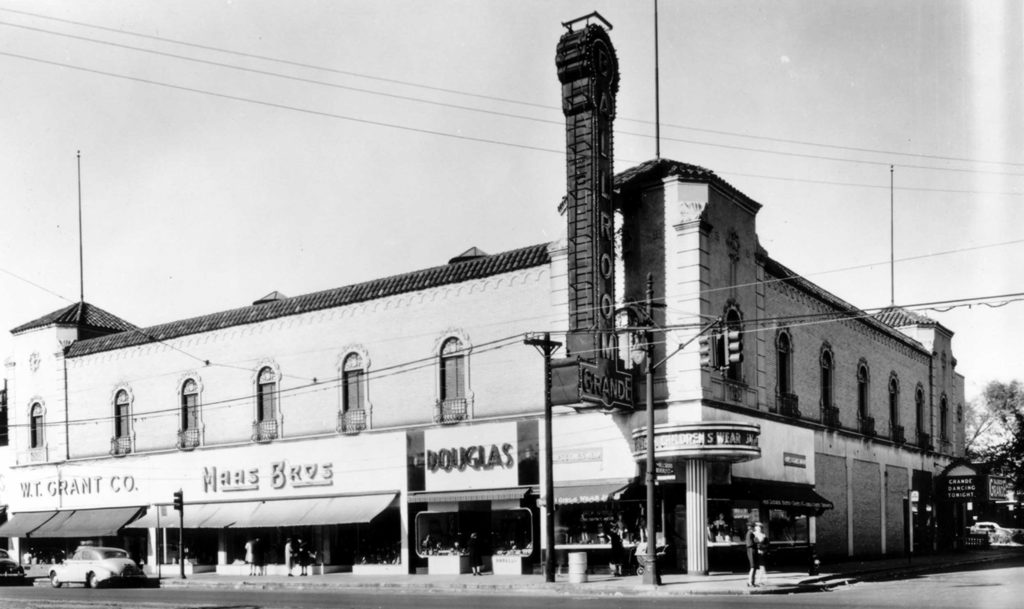
He managed the MC5. He was also the deejay responsible for popularizing the rumor that the Beatles’ Paul McCartney was dead. Someone had called him on his radio show and said that if you played “Revolution #9” backwards it said “Turn me on dead man.” Russ, always on the lookout for something cool to “hype” as he would say, ran with it and a phenomenon was born. This was 1969, long before social media, so having something go viral was a much heavier lift, but it went viral.
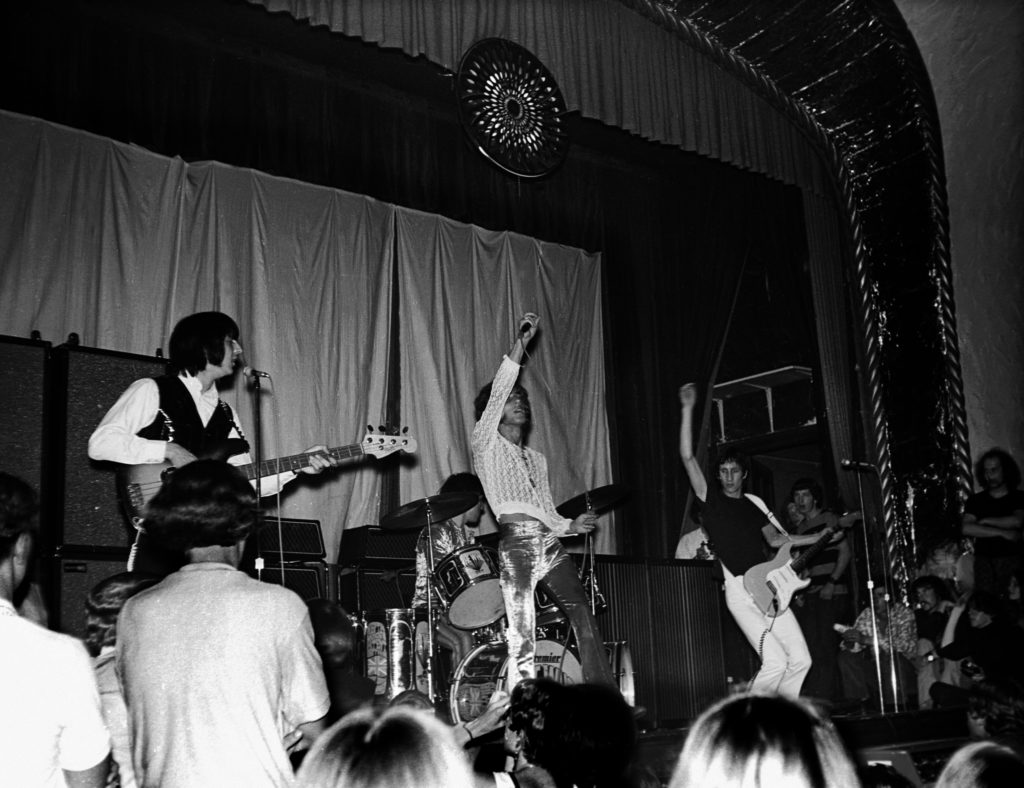
After closing the Grande – he didn’t like all the drugs that were becoming rampant in the rock and roll scene – he moved to London where he rented a house from – yes, this is true – Mick Jagger. His neighbor was Eric Clapton and the two of them took to playing all night games of Monopoly. But what caught Russ’ eye was something else. Mick had dozens of television channels delivered to his house via a coaxial cable. Upon returning to Michigan, he went around offering towns $15,000 for the rights to put cable in their towns. Of course, everyone thought he was nuts. Except, well, cable tv. Russ was soon a wealthy man.
He was also a video teacher at my high school. My dad, who had worked with Russ in radio, suggested I introduce myself. I was transformed. In his video class I found the direction I was seeking. I spent the next three years making videos and being continually challenged by Mr. Gibb – “Sir” as we knew him.
He sent us to the (now gentrified) Cass Corridor to see hardcore punk shows, pushed us to be more creative, and “get a haircut.” He had a unique ability, maybe it was the thick glasses, to see over the horizon and around corners. He just had a nose for what was next and he taught his students to be attuned to the future. I attribute my early entry into digital media to the senses he developed in me.
Mind you, I can’t remember a single lecture he ever gave. Mostly, he just hung around his classroom knowing just what to say to provoke us to learn on our own. He always said, “My job is to create the environment for my kids (we were always his kids) to learn.”
One day he had two of us retrieve a huge box from his beat up Chevette. It was a new piece of video equipment that he’d convinced Sony to “loan” us. They set the box down and everyone turned to Russ to do something with it. He said, “I don’t know how it works. Take it out and set it up.” Sure enough, some of us did and soon it was working.
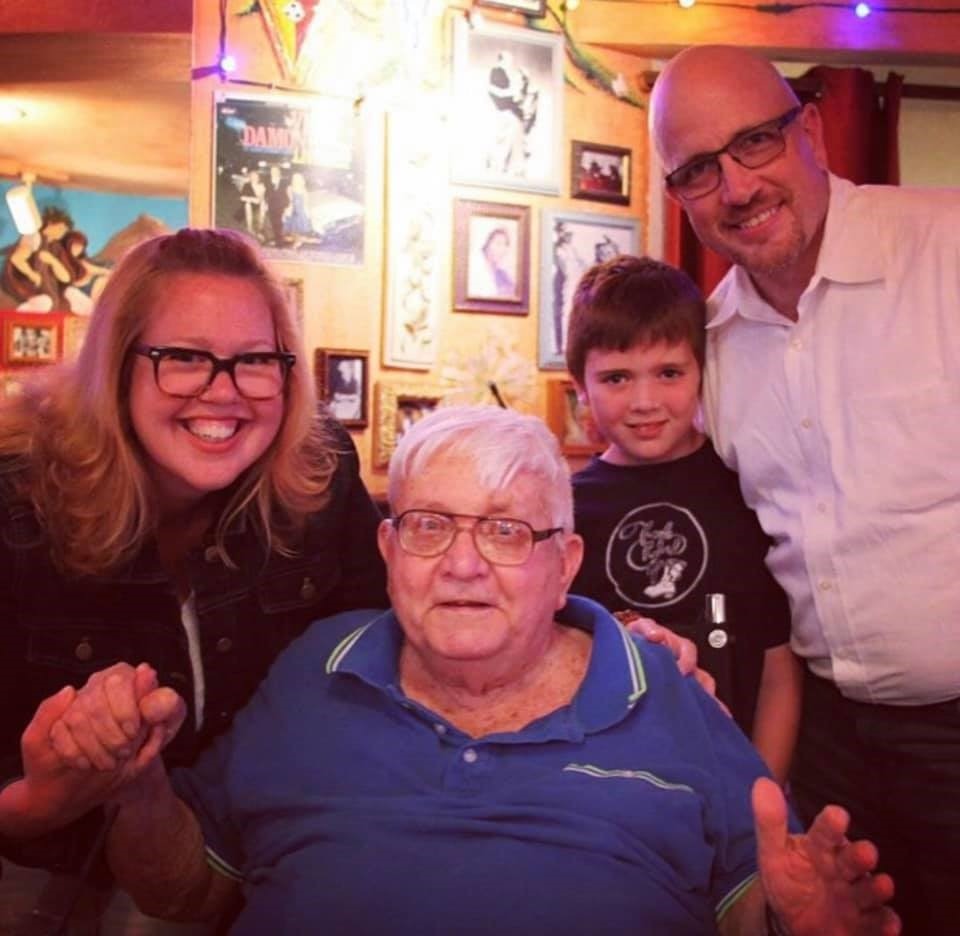
I can’t adequately describe how much he shaped my life. More than anyone other than my parents, Russ made me who I am today. I went to USC Film School because Russ told me I should (and could!). It was through his network of “Gibb-lets” that I met both my wife and my best friend. When I won an Emmy Award (10 years after leaving his classroom), he was my second call (after my parents).
And when digital music was starting to become a thing, he introduced me to someone we knew with an idea. We did a start-up called GrokMusic. When it was time to raise money, Russ invested a significant chunk that served to prime the pump for others. He believed in “his kids” and put his time, energy and even money where his mouth was.
There are hundreds of “Gibb-lets” running around out there who owe him so much. He created the environment and we thrived. You never had to earn Russ’ trust. He granted it to you. It was up to you not to “f*&% up” as he would say. When one of us would screw up or say something stupidly naive, he would send us to the door of his classroom and make us shout out into the schoolyard, “Hello, cruel world!” There was no syllabus, but boy, we did learn some lessons.
He will be missed, but his legacy lives on in all of his “kids” with whom he was so generous and who I am proud to count myself among. I guess the Mother Ship did finally come back for him.
It was October, 1969, I’m a sophomore at Michigan, and bombing a speech class. The assignment for tomorrow? Present a speech where you persuade the class of something they would otherwise find unbelievable.
I noticed everyone in my house running around, carrying Beatles albums, while the sounds of Beatles songs – playing backward and forward – can be heard from several rooms. Everyone’s listening to this Russ Gibb guy on WKNR who’s telling us Paul McCartney died back in 1967, and the Beatles replaced him with an 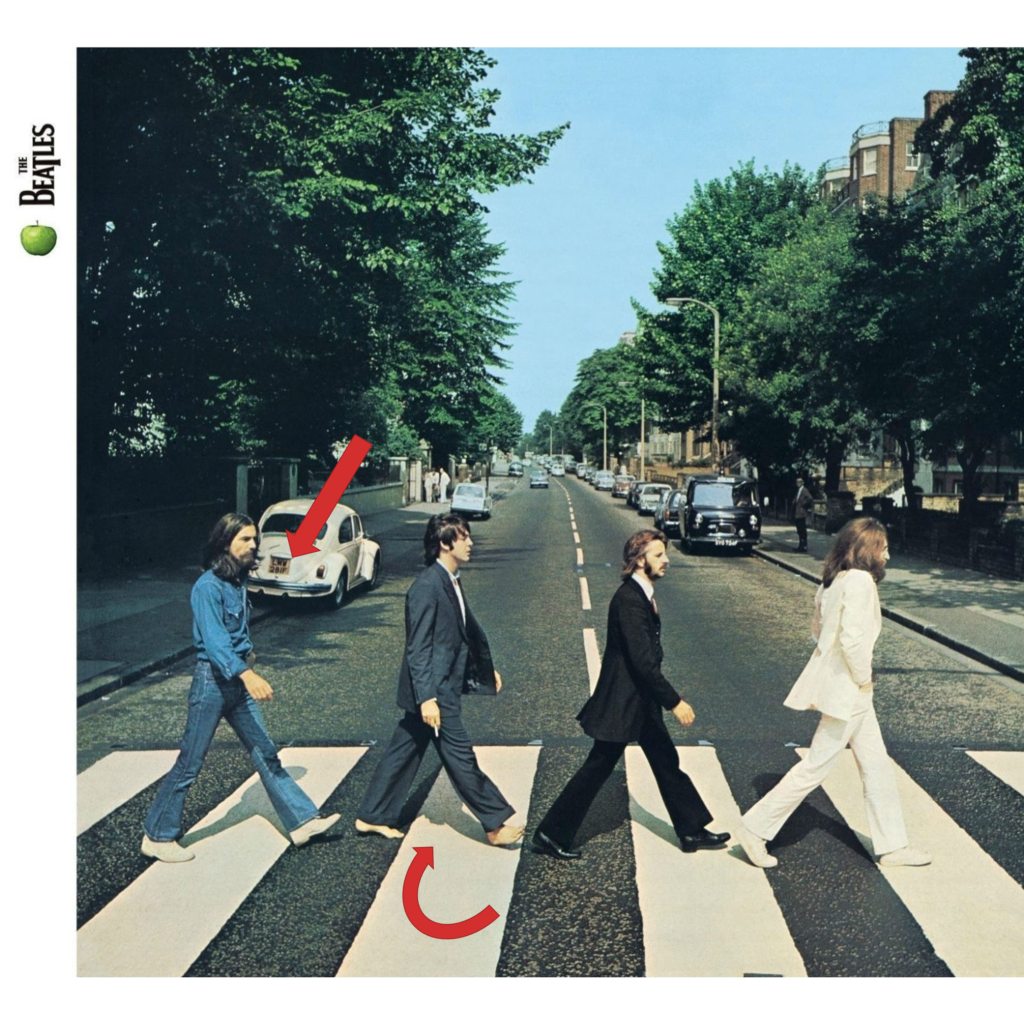 impostor. Apparently, there are “clues” all over the Beatles’ album covers and in their songs.
impostor. Apparently, there are “clues” all over the Beatles’ album covers and in their songs.
It’s a frenzy, but the more I dive in, the more interesting it gets.
“A Day In The Life” is the entire narrative of the car accident that took Paul’s life. And look at that – Paul is the only barefoot Beatle on the “Abbey Road” cover, and in some cultures, that’s the way they bury their dead. And that VW Beetle parked nearby has “28IF” on its license plate – Paul would’ve been 28 had he lived.
John is quietly heard intoning “I buried Paul” during the fade of “Strawberry Fields Forever.” (John would later claim he was saying “cranberry sauce.”) There’s a hidden phone number if you hold up “Magical Mystery Tour” to a mirror. If you call at just the right moment, Paul’s replacement – Billy Shears – might answer the phone. And on and on it went.
We figured it all out without the Internet. And Russ was on the air, leading the madness, taking calls, and helping us piece it all together.
I walked into that speech class the next morning with a stack of Beatles albums and a portable phonograph to present my persuasion speech.
And I aced it.
By the way, the rumors spread from college town to college town, went national, and then international. It got so crazy the real Paul McCartney emerged in November to put an end to the rumors that he’d been replaced in what would have been the greatest hoax of all time.
At the time, I didn’t realize how influential that moment truly was, but I have Russ Gibb to thank for what turned out to be a career spark.
Special thanks to Leo Early, author of The Grande Ballroom: Detroit’s Rock N’ Roll Palace, and to Mark Pasman, Scott Westerman, Susan Whitall, Detroit Metro Times, for their observations this week. – FJ
- What To Do If Your Radio Station Goes Through A Midlife Crisis - April 25, 2025
- A 2020 Lesson?It Could All Be Gone In A Flash - April 24, 2025
- How AI Can Give Radio Personalities More…PERSONALITY - April 23, 2025




Leave a Reply